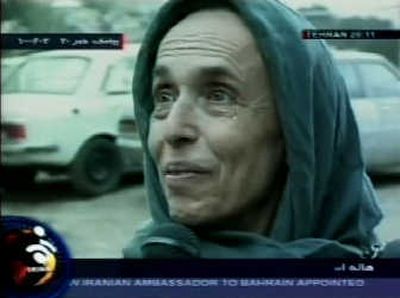Iran frees academic detained for months

TEHRAN, Iran – A detained Iranian-American academic was suddenly released from a notorious Tehran prison Tuesday after spending months behind bars on charges of endangering Iranian national security – allegations her family vehemently denies.
Haleh Esfandiari, director of the Middle East program at the Woodrow Wilson International Center for Scholars, had been jailed in Evin prison since early May after months of interrogation. Her 93-year-old mother used the deed to her Tehran apartment to post bail, relatives said.
“I’m very happy. It was unexpected. I thank all those who made efforts to make it possible for me to go home,” Esfandiari told Iranian television. The footage showed her walking out of the prison and meeting family members in a car on a nearby street.
Mohammad Shadabi, an official at the Tehran prosecutor’s office, said Esfandiari had been released on $333,000 bail, but he could not say whether she would be allowed to leave Iran.
Esfandiari, 67, was detained Dec. 30 after three masked men holding knives threatened to kill her on her way to Tehran’s airport to fly back to the U.S., the Wilson Center has said. The men took her U.S. and Iranian passports, making her unable to leave the country, the center said.
For several weeks, she was interrogated by authorities for up to eight hours a day about the activities of the Middle East Program at the Wilson Center, the Washington-based foundation said.
Iran charged Esfandiari in May.
The Iranian Intelligence Ministry had accused Esfandiari and her organization of trying to set up networks of Iranians with the ultimate goal of creating a “soft revolution” in Iran. Her husband, Shaul Bakhash, and the Wilson Center denied the allegations.
Esfandiari told Iranian TV after her release that her jailers were polite and she had recently been allowed to read newspapers and watch television.
“Their treatment was remarkably good,” she said.
Esfandiari’s daughter, Haleh Bakhash, said she spoke with her mother after her release and that she was elated to be out of prison.
Bakhash said she believed the terms of Esfandiari’s release prevent her from leaving Iran but that she was not under house arrest or any form of detention. “I am guardedly optimistic that within a couple of weeks she will be able to join us,” said Bakhash, who lives in Washington.